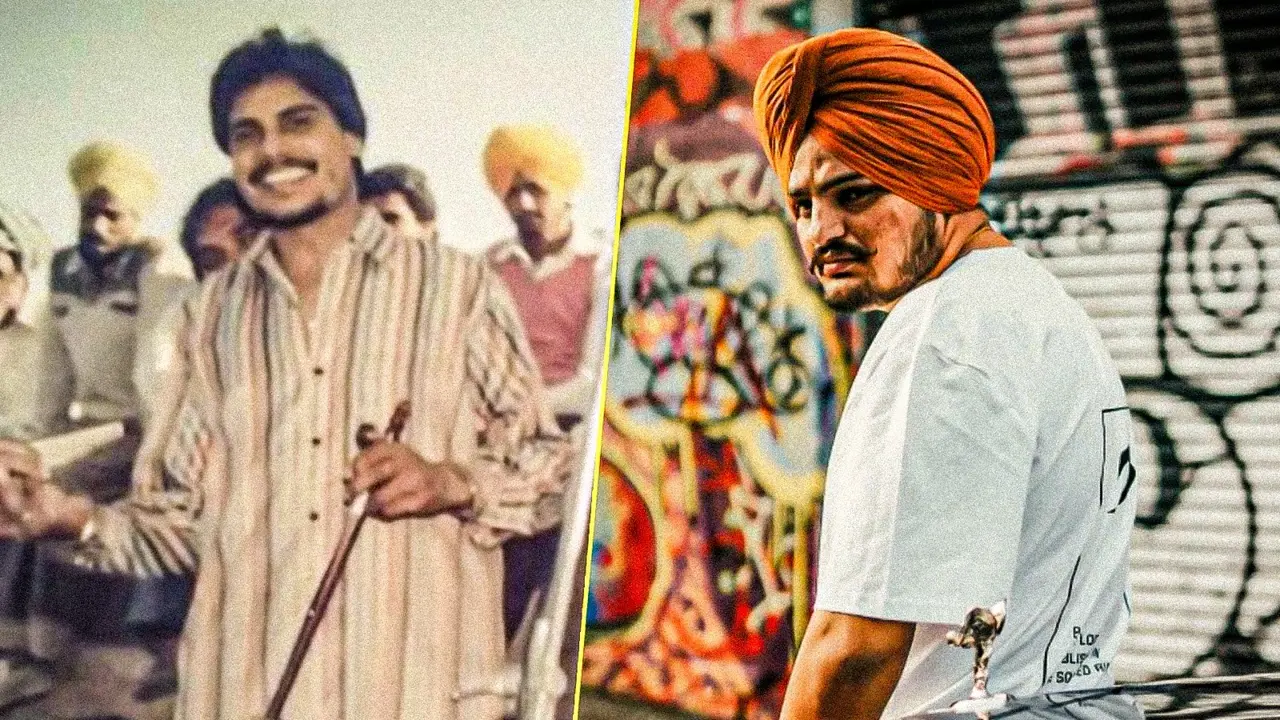Updated 30 April 2024 at 14:15 IST
Chamkila And Sidhu Moose Wala: How Music And Censorship United Two Punjabi Boys In Rise And Demise
Though their musical styles, content and socio-political contexts were starkly different, both Chamkila and Moose Wala addressed pressing issues of their times.
- Entertainment News
- 5 min read

The glow on the face of this young man shows he will die at a young age: Sidhu Moose Wala (The Last Ride, 2022)
Amar Singh Chamkila and Sidhu Moose Wala, two Punjabi artistes separated by decades, rose to dizzying levels of success before their musical careers were cut short by violence. Each left an indelible mark on the Punjabi music scene through raw, unapologetic lyrics.
The Rise To Fame
Born Dhanni Ram in 1960 in Punjab's Dugri, Chamkila burst onto the Punjabi music scene like a thunderbolt in the 1980s by performing at open-air concerts (known as akhade). His rustic voice, unparalleled stage presence and mastery of the tumbi combined with the magical, high-pitch vocals of his singing and life partner Amarjot, quickly garnered him a massive fan base. His music, laced with sexual innuendo, was lapped up by listeners of all ages, genders, castes and classes. His cassettes flew off the shelves and he earned a fortune from his performances. His shows gained traction not just in Punjab's hinterland but also in Canada and the USA.

At the peak of his career, he is said to have performed 366 shows in 365 days, often doing three shows a day. He became an international star at a time when Indian musicians seldom saw global renown.
Advertisement

His journey to fame, however, was as tumultuous as it was remarkable.
With hits like Pehle Lalkare Naal, Takue Te Takua, Babu Chandigarhia and Jija Lak Minle, Chamkila challenged established notions of sexuality and intimacy in Punjabi culture, daring to explore extramarital relationships and erotic attractions between in-laws. Such themes were controversial within the patriarchal structures of society, yet they mirrored lived social realities.
Advertisement

His unabashed commentary through suggestive and titillating lyrics on drugs, alcoholism, illicit relationships and cultural hypocrisy drew ire from conservative elements in Punjab and abroad. He was accused of polluting the minds of the young with his obscene songs and warned of dire consequences.
Cowed down by threats, Chamkila briefly explored devotional music. He was successful there too, with songs such as Baba Tera Nankana and Rab Diyan Rakhan becoming massive hits. But the singer of the descriptive sexual innuendo soon realised that devotional music was not his calling.

He fought against social censorship, criticism and remained steadfast in his art, eventually returning to perform the songs that had earned him fame and brickbats at concerts and weddings.
Fast forward to the 21st century, a new voice emerged from the streets of Punjab – Subhdeep Singh Sidhu aka Sidhu Moose Wala.

Born in 1993, Moose Wala became a sensation in the era of digital streaming, using platforms like YouTube to amplify his message to millions around the world.
He gained immense popularity for his unique style and his ability to seamlessly blend traditional Punjabi folk with rap and hip-hop beats, and his music came to be identified with the niche genre of ‘gangster rap’.
Moose Wala repeatedly delivered chart-topping hits like Warning Shots, 295, Never Fold and Levels among others. He collaborated with international musicians such as Tione Wayne, Bohemia, Steel Banglez and Burna Boy. Singles such as 47 and Mera Na cemented his status as a global sensation.

Just like Chamkila, for Moose Wala fame came with its share of troubles. He was accused of glorifying casteism (in songs such as Issa Jatt and Jatt Da Muqabala), violence, alcoholism, misogyny and toxic masculinity.
He was even booked by the Punjab Police under the Arms Act for allegedly promoting gun culture in 2020 in his song Panj Goliyan.
His fans, however, saw him as an artist who served an unvarnished commentary on the dark underbelly of Punjab and put the spotlight on social realities such as drug abuse, rising unemployment, police brutality and political corruption.
A Tragic End
Both Chamkila and Moose Wala shared a deep connection with their Punjabi roots which served as cornerstones for their rise to fame.
Moose Wala, with his authentic Punjabi upbringing, was known for his genre-mixing music. He infused his music with local flavour which helped him connect with listeners around the world.

Similarly, Chamkila's music which was deeply rooted in Punjabi folk traditions and captured the essence of rural life, struck a chord with listeners and earned him a dedicated fan following.
Though their musical styles, content and socio-political contexts were starkly different, both Chamkila and Moose Wala addressed pressing issues of their times and challenged established ideas and norms within Punjabi society through their bold approach to music.
And it had consequences.
On March 8, 1988, Chamkila, 27, was shot dead along with his wife Amarjot by unknown assailants as they stepped out of their car for a performance in Mehsampur.

Moose Wala was shot dead by unidentified assailants on May 29, 2022, in Mansa, at the age of 28.
The killers, in both the cases, remain unidentified.
Their music lives on...
For as long as they lived and created music that had significant cultural influence, they faced death threats. Yet, they remained defiant, asserting their right to artistic freedom. Eventually, they were silenced. But the legacy they've left behind, continues to reverberate through the corridors of Punjabi music.
The following lyrics from Moose Wala's 295 come to mind: "Uth putt jhoteya oye Moose Waleya, Je aivein reha geetan vich sach bolda, Aaun wali peedhi educate milugi (Get up, my son Moose Wala, if you continue telling the truth in your songs, it will educate the future generations).
Published By : Jyothi Jha
Published On: 18 April 2024 at 12:01 IST
